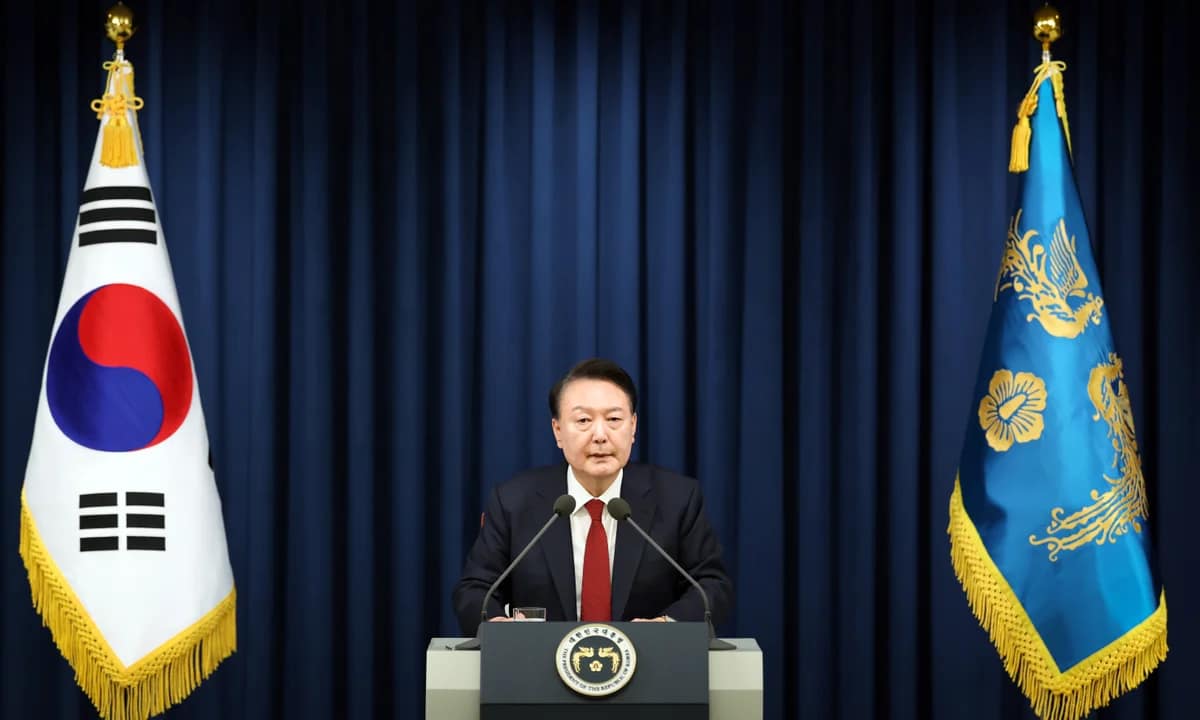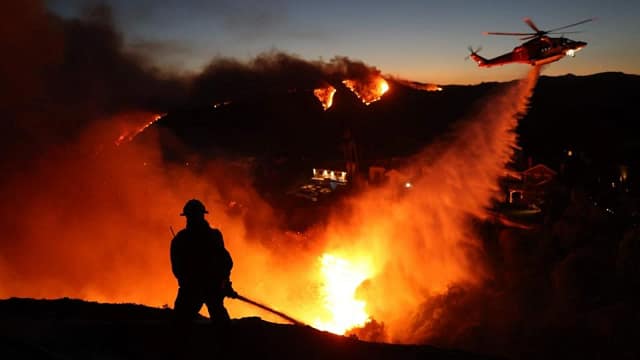In a dramatic turn of events, South Korea is witnessing an unprecedented political crisis as President Yoon Suk Yeol faces mounting calls for impeachment following his controversial declaration of martial law. The move, which marked the first imposition of martial law in the country since the 1980s, has sparked nationwide protests and drawn severe criticism from opposition parties, civil society, and even members of his own conservative People Power Party (PPP).
Martial Law Announcement and Reversal
Late on Tuesday, President Yoon declared martial law during an unscheduled national address, citing the need to eliminate “anti-state forces” and “normalize the country.” The decree included provisions to suspend political activities, arrest individuals without warrants, and restrict dissent by banning “fake news.”
The response was immediate and intense. Thousands of protesters gathered outside the National Assembly in Seoul, demanding the withdrawal of martial law and accusing Yoon of violating democratic norms. Inside the parliament, 190 lawmakers from both ruling and opposition parties convened an emergency session, unanimously rejecting the decree. The swift parliamentary action forced Yoon to rescind martial law and withdraw troops that had briefly surrounded the Assembly.
Opposition and Public Outcry
The main opposition Democratic Party condemned the declaration as a “grave violation of the constitution” and labeled it an act of treason. Democratic Party leader Lee Jae-myung warned of potential further attempts by Yoon to consolidate power, possibly through provocation with North Korea.
“This is a clear attack on our democracy,” said Lee during a rally. “South Korean President Yoon ’s actions risk destabilizing our nation both politically and on the North-South border.”
Public protests have continued to swell, with the influential Korean Confederation of Trade Unions calling for an indefinite strike until Yoon steps down. Demonstrators outside the Assembly celebrated the rollback of martial law but vowed to keep up pressure on the president to resign.
Economic Impact and International Reaction
The political turmoil has also taken a toll on South Korea’s economy. The Korean won initially plummeted against the US dollar, and the benchmark Kospi index dropped nearly 2%, with significant losses for major companies like Samsung Electronics. The Bank of Korea has pledged to stabilize the financial markets, stating that “all options are on the table.”
Internationally, Yoon’s actions have raised concerns. U.S. Secretary of State Antony Blinken welcomed the rescission of martial law, emphasizing the need for political disputes to be resolved within the framework of the law.
Path Forward: Impeachment on the Horizon?
The opposition is now pushing for impeachment, which would require a two-thirds majority in the 300-member National Assembly. With 192 seats under their control, the opposition needs at least eight PPP lawmakers to join them. If an impeachment vote passes, Yoon would be suspended from office pending a final ruling by the Constitutional Court, with the prime minister stepping in as acting president.
This latest crisis follows months of legislative gridlock, with Yoon struggling to advance his agenda in a parliament dominated by opposition parties. Analysts warn that failure to resolve the crisis could lead to sustained public unrest and further strain South Korea’s political stability.
A Shaken Presidency
South Korean President Yoon ’s attempt to impose martial law has not only galvanized opposition forces but also alienated key allies within his party. The PPP has urged Yoon to dismiss his defense minister, Kim Yong-hyun, who reportedly recommended the declaration. Some party members are even considering asking Yoon to leave the party to contain the fallout.
As South Korea navigates this volatile period, questions remain about the president’s political survival and the long-term implications of this crisis for the nation’s democratic framework.
Sidenote: This news report is curated with insights from multiple reliable news sources.








